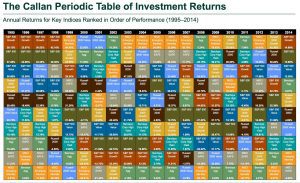How do you negotiate an offer letter from a tech company or startup? What are the levers you can pull to get to the opportunity you want?
Recently I received the following note: “I found the job I want! I am pleased with the initial offer, but I asked the recruiter to go back and see if there was any more wiggle room to increase my total compensation. #negotiating
The recruiter came back with a new offer this morning. Total increase in my total compensation for year 1, but they increased the RSUs and lowered both of my signing bonuses. How do I decide which offer is best for me?”
Stock compensation, cash salary, and cash bonuses are the levers available for companies to work with in your offer letter. If you require more cash salary to meet your current expenses, then your stock compensation component will be smaller. Everything is a trade-off.
How much less stock compensation should you expect compared to the increase in cash? It all counts on the company’s analysis – so do your own as well!
The main consideration to keep in mind is that you and the company may value these levers differently. Make sure of how you feel about each component to ensure you negotiate for the best agreement for YOU.
First: Review similar job positions at the company for salary and bonus parity.
I love using Glassdoor.com for a quick review of whether my compensation looks right for the market and the position. The more of your type of position at a company, the more accurate and timely the information posted will be.
If you are looking at a tech startup, make sure you review similar compensation packages at similar sized startups (i.e. both Series B).
If you are looking at Amazon or Microsoft, a friend may help you find the salary band for the position. Generally, they will need the Job ID to review internal documentation (if they are comfortable looking it up for you).
Second: If you have an offer with RSUs or Stock Options, think about the trade-offs.
Look for reviews online or ask startup friends what the usual RSU / Stock Option grant is and take some time to decide how you value this component.
- What is your risk tolerance when it comes to investing in stock? RSUs will automatically become stock in the company once they vest.
- Where do you see the company going? Is their stock currently at an all-time high? Is it a private company raising its next Series funding? What does growth look like? Do you believe in the company’s strategy longer term?
Stock Options in a private company may not be sold until a liquidation event (merger or acquisition or IPO). So you may need to hold onto the stock for 5-7 years and the company may end up closing its doors in the end. Stock Options are definitely a long-term play for most private companies.
- Is the grant larger than expected, based on the information you could find? This may be a signal that the stock is at an all-time high price range, so they are cushioning you for any volatility in the next few years. I’ve seen Amazon doing this for some recently.
Third: If you negotiate for an updated offer, consider the differences between the levers and how you value those differences.
Most large companies analyze where they believe the value of their stock will be over the next 5 years and the volatility surrounding that. This is how they determine how much stock compensation equates to cash compensation changes. They want employees to be satisfied over the longer term, but they also want to use their stock well considering the future value.
Consider how you will use the stock compensation.
- Will you sell vested RSUs immediately or plan to hold onto some/all for a significant time period?
- If your stock options vest, will you exercise the options? Do you have the cash available to buy your options? Will you make an 83(b) election once granted to you?
- Does the cash portion of your offer cover your expenses + adequate savings? If so, are you interested in the greater risk and reward in stock compensation?
In determining how you ‘value’ these levers, decide what makes you most comfortable. Are you more comfortable with a bit more cash salary than the unknown RSU or Stock Option value over the next few years? Then discount the value of the stock compensation you will receive in your mind. If you do a great job, more RSUs/Stock Options will be on the way. Many companies in the tech industry prefer to give bonuses of stock compensation instead of cash.
A higher cash salary gives you a greater bump when they assign increases in compensation. This is generally done as a percent change (i.e. Amazon) or in line with performance (i.e. most small startups).
One final note: Review the invention assignment clause. Pay close attention if you are working on, or think you may want to work on, something outside of the business during your tenure. You may need to determine whether it makes sense to buy a website and throw a splash page up and carve it out in the agreement.
Where are you in your start-up adventure?
- Looking for more information on how to negotiate your next compensation package?
- Did you just receive your stock option grant?
- Or are you thinking about exercising your grant?
Did you enjoy this post? Sign Up for my newsletter so you won’t miss another article.
The above discussion is for informational purposes only. Recommendations are of a general nature, not based on knowledge of any individual’s specific needs or circumstances, and there is no intent to provide individual investment advisory, supervisory or management services.



